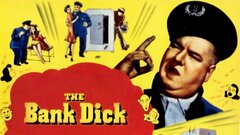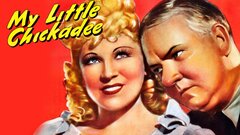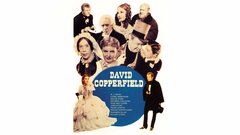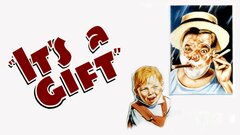A renowned gambler and card-shark, a gin drinker, and hater of children, iconic actor- comedian W.C. Fields was known as all these things and more - a pool hustler, a juggler and an ordinary man struggling against life. Some widely held beliefs were true; some were part of the act, but above all the cantankerous man with a bulbous nose and a drawling voice was one of the funniest, richest and most influential comics of the twentieth century. While Charlie Chaplin drew our sympathy, Buster Keaton earned our astonishment and the Marx Brothers made us blush, Fields spoke directly to what made us human - our dark desires, the unspoken urge for meanness, the depravity which we all held quiet, all the while making us laugh when he got away with it. Fields was the man whom audiences hated to admit reminded them of themselves.
William Claude Dukenfield was born on Jan. 29, 1880 and raised in Philadelphia, PA. From the start, he had show business in his blood. But unlike comics of later generations, he drew from real life instead of television or a Harvard education. During his childhood, his mother's withering asides about passing neighbors fueled what would become one of Field's classic bits - smiling openly while delivering tart-tongued comments under his breath. In later years, it came to light that Fields often embellished stories of a youth filled with hardship - with the likely truth being that his family was supportive of his dreams to enter show business.
Nonetheless, stories circulated that Fields grew up in an abusive household - years of listening to his father imbibe and sing religious songs, followed by a slap to the head, left him averse to music but open to drinking, as demonstrated in his later years. After just a few years of education, Fields was plucked out of school by his father and put to work, manning the vegetable cart that was the family business. At nine years old, the resourceful Fields sneaked into a vaudeville act and witnessed something that wound up changing his life: a juggling act. Determined to become a juggler himself, Fields practiced with his father's vegetables, frequently dropping them and earning not only his ire but, reportedly, a shovel to the head. At 11 years old, Fields ran away from home and never returned.
Working several odd jobs and often in trouble with authorities for stealing, Fields developed a fondness for vice and hustling money at billiards by age 15. He also kept up the juggling and became so skilled that he was hired by an amusement park in Norristown, PA, not far from where he was born. While juggling for appreciative crowds, he stumbled upon a sure-fire gag - he pretended to be clumsy and inept, dropping what he juggled, which including everything from cigar boxes to hats. But as each mishap translated to another miraculous feat, he earning laughs as well as applause. Soon after, he took a job juggling on the pier in Atlantic City, NJ.
At 18, he made his way to vaudeville, performing his juggling act as well as a variety of stock roles in other shows. Billed as "The Distinguished Comedian," Fields was reportedly so successful that he opened bank accounts in every city he played in. In fact, by the age of 23, he was already performing at London's Buckingham Palace with performer Sarah Bernhardt. Among his showbiz talents, Fields was also a skilled artist and drew cartoons for newspapers, as well as posters for his shows. Beginning in 1915, Fields landed a place in the enormously popular Ziegfield Follies, appearing in each show from that year through 1921. Still young and thin, he bore scant resemblance to the crusty persona for which he was later remembered. He perfected his clumsy juggler act and also developed a comedy pool routine, with strangely shaped pool cues and a custom-built pool table rigged for gags.
During this time he also developed his classic speech style, mumbling and grumbling his observations. His command onstage led to his first Broadway success in the musical, "Poppy," where he perfected his signature role of a sneaky, untrustworthy huckster. After his highly successful stint in the Follies, he ventured into the relatively new medium of film, appearing in silent films and "one-reelers," or 10-minute shorts. His first acting and writing effort - "The Pool Sharks" (1915) - saw a fake-mustachioed Fields comically competing against a rival for the affections of a woman. He soon completed other silent films before returning to vaudeville to star in a production of "Vanities." Fields was well-compensated for his efforts: fearing that he may fall back into poverty, the comic clamored for the best pay he could. By 1915, he was earning $800 a week; in later movies, he would earn as much as $5,000 a week.
Though Fields had made strides in the movie business, his commitments to the stage prevented him from stepping back in front of the camera until 1924. He returned to films with a brief comic appearance as a British officer in William Randolph Hearst's epic showcase for mistress Marion Davies, "Janice Meredith" (1924). Fields soon landed starring roles in a slew of silent comedies, all of which saw him wearing his then-trademark fake black mustache. In "Sally of the Sawdust" (1925), he was a crusty card shark who befriends a dancer (Carol Dempster) while working a carnival. Fields starred later that year in D.W. Griffith's crime drama, "That Royale Girl" (1925), playing a small time crook whose daughter (Dempster) falls under the suspicion of a district attorney (James Kirkwood) after her boyfriend murders his wife.
Fields continued to star in silent fare throughout the 1920s, though later generations were unable to see several titles because they were lost in the dustbins of time. After comic roles in "It's the Old Army Game" (1926) and "So's Your Old Man" (1926), he starred in "Two Flaming Youths" (1927) as the owner of a dog-and-pony operation that desperately tries to stay ahead of creditors and the authorities. In "The Potters" (1927), he puts his family into financial jeopardy after investing their life savings in worthless oil stock, while in "Running Wild" (1927) he starred as a henpecked family man who becomes aggressive at home and at work, thanks to a stage hypnotist who puts him under a spell. Fields made his final silent film, "Fools for Luck" (1928), donning his cheap black mustache one last time - he ditched the prop when he moved into talkies - to once again play a schmuck who invests all his money in a dry oil well.
When he reached his fifties - a time when most Hollywood actors have been pushed aside - Fields signed with producer Mack Sennett, famous for his comedy shorts, and felt a resurgence in his career. He churned out seven "two reelers" - typically running around 20 minutes each - including "The Golf Specialist" (1930), "The Dentist" (1932) and "The Fatal Glass of Beer" (1933). The shorts cemented what would become Fields' patented routine, and remain some of the funniest work of his career. With the feature film "International House," Fields signed a long-term contract with Paramount Pictures, which led to roles in 16 feature-length comedies, including "Million Dollar Legs" (1932) and "Tillie & Gus" (1933). On the former project, he met co-star Carlotta Monti, with whom he shared a relationship for the rest of his life. Monti would later write a book detailing the couple's involvement.
While never remembered for actually being drunk or disorderly, Field rightfully earned his reputation as a drinker. In the mid-1930s, Fields stopped appearing in movies for a spell due to illness brought about and exacerbated by alcohol. But during his convalescence, however, he started a career as a comic radio personality, frequently appearing as a guest on Charlie McCarthy's radio show and often trading insults with the host. As his health improved, Fields made a return to the movies - in a big way. In 1935, he played the character of Wilkins Micawber in "David Copperfield" - a thrill for the comic, due to his of his love of author Charles Dickens. The next year, he appeared in the film version of "Poppy" (1936) where he uttered one of his most famous lines: "Never give a sucker an even break!" The picture heralded his comeback.
Once again near the top of his game, Fields was offered the role of the Wizard in "The Wizard of Oz" (1939), but did refuse the part. The story went that he considered the role too small and that MGM did not offer him enough money - his going rate at the time was $100,000 per picture. But just as likely a story was that Fields was too busy writing his next film with his former radio partner, McCarthy - "You Can't Cheat and Honest Man" (1939). Like many of his later films, Fields wrote under a humorous-sounding pseudonym - in this case, Charles Bogle. He would also write under the names Otis Criblecoblis and Mahatma Kane Jeeves; a take on the then-popular phrase, "My hat, my cane, Jeeves."
In 1940, he co-starred with Mae West in "My Little Chickadee," which he also wrote. That same year he wrote and starred in "The Bank Dick," his most popular movie. A career highlight, he played the lead role of unlikely bank detective Edgar Sousé, a name derived from a slang term for a drunk, only with a more refined pronunciation. Fields delivered a number of classic lines, including asking a bartender if he had been in the night before and spent $20 - when the bartender answered that he had, Sousé showed relief and replied, "What a load that is off my mind. I thought I'd lost it." Ambling about town, Sousé encountered all manner of people and situations, scarcely improving them with his presence. Approaching a chauffeur working on a broken down car, Sousé utters the helpful hint that the problem may be with the wheelbase of the vehicle. He volunteers his help, asking for a monkey wrench, then knocks a perched toolbox down into the engine, which he leaves behind in even more of a mess. A madcap car chase in the climactic ending - including a detached steering wheel which Sousé places in the backseat, certain they will need it later - is made all the funnier by his characteristic deadpan reactions.
The film was nearly to be his last. Fields appeared as himself the following year in "Never Give a Sucker and Even Break" (1941), again written by him, where he played Uncle Bill or Bill - the name for which he was known by his friends. But by 1942, the roles dried up and Fields was at an end. He spent the last of his days in a hospital, suffering from various illnesses and deteriorating vision At Las Encinas Sanatorium in Pasadena, CA, Fields died at the age of 66 from a stomach hemorrhage on Christmas Day in 1946 - a holiday that he reportedly only pretended to hate despite his love for Dickens. He was soon laid to rest at Forest Lawn Memorial Park Cemetery, in Glendale, CA. When alive, he had often joked that he wanted his gravestone to say, "On the whole, I'd rather be in Philadelphia," which was interpreted as either a joke about his home state or a reference to the common comedian's lament that performing anywhere was better than performing in Philadelphia.
Meanwhile, Monti's account of her life with Fields - W.C. Fields & Me" -- was published in 1971 and made into a movie in 1976, with Rod Steiger playing Fields. In what may have been all-too-common circumstances of confusing fiction with real life, Fields was well known for loathing children. A widely circulated but nasty rumor had him spiking the milk of Baby Leroy with gin on the set of "Tillie & Gus," when the famous child star was just one-year-old. Later accounts, however, portrayed Fields as a devoted father and grandfather. Fields left behind a legacy of comedy that appeared in everything from the self-referential stage routines of Lenny Bruce to the strange names and odd asides in characters performed by Chevy Chase. He celebrated bad, astonishingly boorish behavior decades before Larry David. Yet thanks to his everyday humor and timeless scenarios of golf, pool and beer drinking, he remained contemporary well past his time.










































































![INTERNATIONAL HOUSE, George Burns, Gracie Allen [Burns & Allen], W.C. Fields, Franklin Pangborn, 1933](https://media.baselineresearch.com/images/410351/410351_small.jpg)








































![NEVER GIVE A SUCKER AN EVEN BREAK, Billy Lenhart [Butch], W.C. Fields, Kenneth Brown [Buddy], 1941](https://media.baselineresearch.com/images/402416/402416_small.jpg)




























































































![DAVID COPPERFIELD, W.C. Fields, Freddie Bartholomew [photo by Clarence Sinclair Bull], 1935](https://media.baselineresearch.com/images/133558/133558_small.jpg)

































